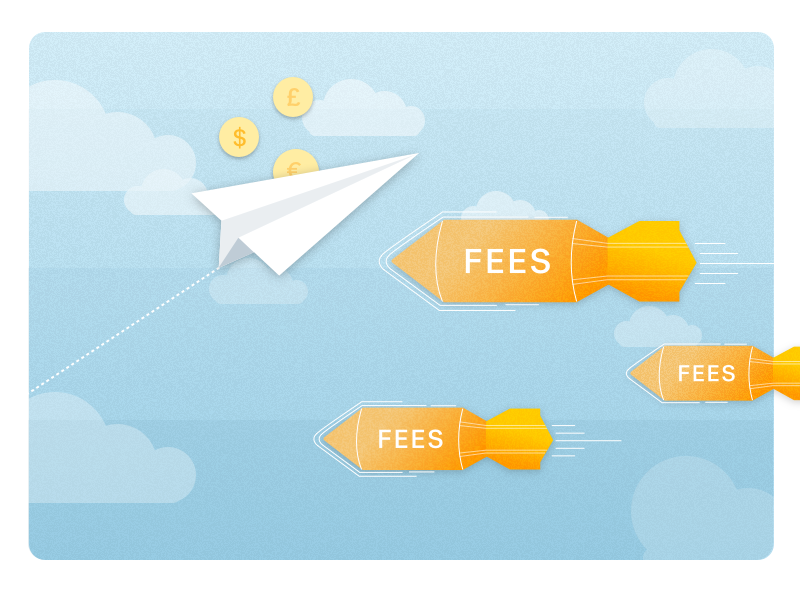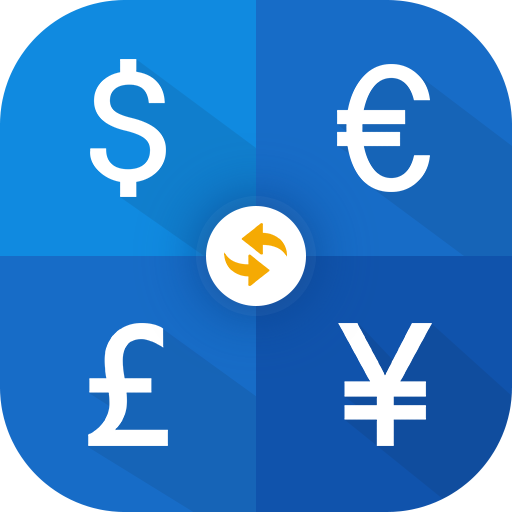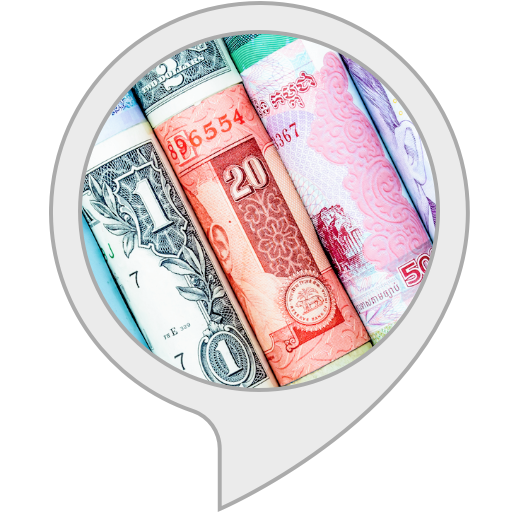
With so much potential, you'd hope financial institutions would rally around small businesses to help them thrive in this growing market. But the reality couldn't be more different.
According to a Capital Economics study, SMEs in the UK endure a disproportionate amount of unfair international payments and consequently lose up to 10X more than larger businesses.
At first glance, the future finances of eCommerce look grim. But thankfully, there's an increasing amount of alternative payment solutions, meaning you don't have to settle for unfair currency conversion fees or sneaky add-on charges.
So, let's find out how money is slipping through your fingers and into the bank's pockets via currency exchange fees—and how you can put an end to it.
Tired of paying excessive exchange fees? Find out how the Sellers Funding Digital Wallet can help.

The Amazon Currency Converter for Sellers (ACCS) is an optional solution that allows you to have all your earnings disbursed in your currency and bank of choice.
Sounds great, right? It is… until you look at the fees.
ACCS works on a volume-based scale, known as Volume Based Fees (VBF).
VBF prices convert according to the number of processed sales you've made over the past 12 months, called the Total Processed Volume (TPV).
As your TPV increases, your fees decrease (and vice versa).
ACCS fees range from 0.75% for Tier 1 (the highest tier) to a painful 1.5% for Tiers 4-6—which is where you fall if you make $100,000 or less.
With this fee structure, if you earn $100,000, you can expect Amazon to collect a hefty $1,500 off the top for their trouble. And your bank may charge you a fee too.
In other words, with ACCS you can look forward to a sea of never-ending charges for a simple service.
With so many alternative options available (like Sellers Funding Digital Wallet), it just isn't worth throwing your hard-earned cash back at Amazon.
Need somewhere to stash your foreign cash without getting ripped off? Check out the Sellers Funding Digital Wallet.

If you think you can dodge these fees by going directly through your bank, think again.
According to Money Mover, with traditional banks, you can end up paying a foreign transaction fee and a currency conversion fee ranging between 1.68% to 3.68%.
The same report also uncovers some shocking facts on the plight of UK SMEs after surveying six mainstay banks (Barclays, HSBC, Lloyds, NatWest, RBS, and Santander):
Just think what this could cost your business in a year. Better yet, what could you do with this extra money?
Banks take advantage of the confusing layers of fees and varying exchange rates—they know you'll only notice them once the transaction’s already finalized, and that you’ll probably be too busy to dispute them.
And with the big four banks (HSBC, RBS, Lloyds, and Barclays) holding 85% of business accounts, there isn’t much choice even if you do decide to change banks.
In other words, you're stuck—or at least that's what the banks think. But they couldn't be more mistaken (we'll get into why a little later 😉).

After all this bank confusion, you may think the best thing to do is enlist the help of online payment behemoths like PayPal—but while they're definitely convenient, their currency exchange fees and rates aren't any better.
PayPal charges transaction fees as high as 3.5% + a fixed fee. Plus, they tack on international fees that can range from 0.5% to 2%. And that’s before you get into PayPal's non-competitive exchange rates.
Unfortunately, PayPal's celeb-like status in the payments industry gives it the option to provide the rates it wants.
Some newer payment platform providers like TransferWise and Payoneer have tried to step in and address the fee issue. But even their fees aren't always favorable for business models like Amazon, with high transaction amounts and large disbursements.
For example, when you transfer over $10,000, TransferWise will charge you between 0.5-1.5% (determined by the money's destination), not a fixed fee like other providers. These features make the charges excessive and unpredictable and can have far-reaching and disheartening effects. Here are a few:
It's not all doom and gloom. Since cross-border payments show no signs of slowing down (hitting $130 trillion in 2019) there are more currency conversion and payment platforms in the market than ever.
Now, all you need is a concrete strategy to keep hold of your hard-earned cash.
Here's how to get the best currency exchange fees and rates around:
Humans are creatures of habit—so don't be surprised if your habits show up in your business too.
For example, instead of finding the best bank for your eCommerce store's needs, you may decide to stick with a bank you know. But when it comes to currency exchange fees and international transaction charges, easy can cost you big time if the bank is a poor fit.
Never allow complacency to rob you of your precious cash. Do your due diligence to find a banking ad or payment solution that works for you.
Knowledge is power, so before you commit to a currency exchange provider, find out what acceptable currency conversion fees are for your sales volume, desired currencies, and location.
This approach will help sift out the providers committing daylight robbery. 🕵️
Read the small print to build a clear picture of what they charge under different circumstances, i.e. if you need a rapid transfer of a large sum of money.
Then compare your findings against how your business operates to determine whether it’s a good fit. For example, if you know you'll have multiple disbursements in one month, a provider that charges 7% for each additional transaction is a no-no.
Older doesn't mean better, especially when it comes to finding the provider with the least currency exchange fees.
Don't be afraid to look for modern banking and payment solutions. Compared to the big banks and payment processors, these newcomers are more likely to have competitive currency conversion rates and international transaction fees.
To ensure you'll be a match, make sure they:
(Just so you know, the Sellers Funding Digital Wallet ticks all these boxes and more 😉).
💡 Top tip: If you can't avoid using providers that charge additional fees per transaction (i.e. you're still researching different options), try to bulk your withdrawals and use a single provider. Most payment processors have a threshold that will reduce the transaction charges and currency conversion fees once reached.
As banks and big players in the payments industry continue to profit from the lack of transparency in their currency exchange fees and international transaction charges, you can bet they'll continue to charge an arm and a leg for the foreseeable future.
But you can do better.
Be proactive in securing the best currency exchange fees and rates by hitting the digital streets, notebook in hand. This will allow your money to work for you elsewhere in your business instead of lining a financial institution's pockets.
Start looking as soon as you can, sift through the fine print, and don't give up until you find your match. You've got this! 💪
Want to cut your search short? The Sellers Funding Digital Wallet holds 37 currencies from multiple sources. Check it out!